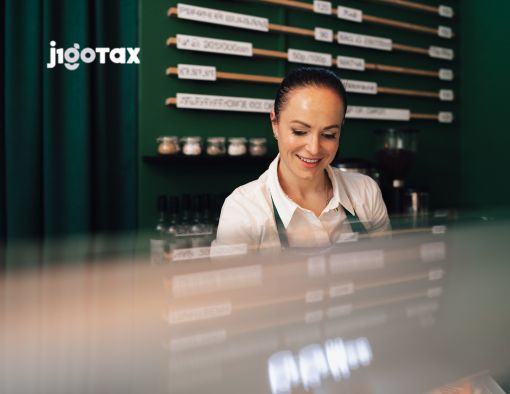The Authentic Flavors of Florida Every J1 Visa Student Should Try
More Than Sunshine and Beaches
When most people think about Florida, they picture palm trees, Disney World, and endless beaches. But for J1 visa holders, the Sunshine State offers much more than just a workplace or study destination—it’s a gateway into one of the most diverse food cultures in the United States. While you are here working and experiencing American culture, food becomes a central part of the journey.
As a J1 student, your time in Florida is limited. Balancing work, travel, and everyday responsibilities such as filing your J1 visa taxes may take energy, but exploring Florida’s authentic foods is part of what makes your cultural exchange truly meaningful. From Cuban sandwiches in Tampa to Key lime pie in the Keys, every bite tells a story about Florida’s history, communities, and diversity.
This guide explores the authentic foods you should try in Florida, explains where to find them, and even connects how these cultural experiences go hand-in-hand with being responsible about your J1 visa tax return.

The Tax Moves Blog

More Than Sunshine and Beaches
When most people think about Florida, they picture palm trees, Disney World, and endless beaches. But for J1 visa holders, the Sunshine State offers much more than just a workplace or study destination—it’s a gateway into one of the most diverse food cultures in the United States. While you are here working and experiencing American culture, food becomes a central part of the journey.
As a J1 student, your time in Florida is limited. Balancing work, travel, and everyday responsibilities such as filing your J1 visa taxes may take energy, but exploring Florida’s authentic foods is part of what makes your cultural exchange truly meaningful. From Cuban sandwiches in Tampa to Key lime pie in the Keys, every bite tells a story about Florida’s history, communities, and diversity.
This guide explores the authentic foods you should try in Florida, explains where to find them, and even connects how these cultural experiences go hand-in-hand with being responsible about your J1 visa tax return.
The Cultural Fusion That Defines Florida’s Cuisine
Florida’s food scene is deeply shaped by its immigrant history. Spanish settlers, Cuban and Caribbean communities, African-American traditions, and Southern comfort cooking have all blended into something unique.
-
Caribbean influence: jerk chicken, fried plantains, and tropical fruits.
-
Latin American flavors: Cuban sandwiches, ropa vieja, black beans, and rice.
-
Southern classics: fried chicken, barbecue, biscuits, and grits.
-
Seafood abundance: grouper sandwiches, stone crabs, shrimp, and fresh oysters.
For a J1 visa holder, food is not just about eating. It’s about living the American dream in a state where global cultures meet at the table. Much like navigating the complexity of taxes on a J1 visa, learning the food culture takes patience, curiosity, and guidance.
Iconic Foods to Try in Florida
1. The Cuban Sandwich in Tampa and Miami
If there’s one food that defines Florida, it’s the Cuban sandwich. Originally created by Cuban immigrants in Tampa and later made famous in Miami, this sandwich layers roasted pork, ham, Swiss cheese, pickles, and mustard on Cuban bread, pressed to perfection.
It’s affordable, filling, and the perfect meal for a J1 student on the go. Visiting Florida without trying a Cuban sandwich is like leaving without filing your J1 visa tax return—you’d be missing something essential.
2. Key Lime Pie in Key West
Sweet, tart, and creamy, Key lime pie is Florida’s official dessert. Made with small Key limes, condensed milk, and a graham cracker crust, this treat captures the tropical spirit of the state. You’ll find it everywhere in the Florida Keys, but also in restaurants across Miami and Orlando.
Much like the rules around J1 visa tax exemptions, Key lime pie is all about balance—sweet and sour, simple but sophisticated.
3. Fresh Florida Seafood
Being surrounded by water, Florida is a paradise for seafood lovers. Some dishes to try include:
-
Stone crabs (Miami and the Keys) – only in season, October to May.
-
Grouper sandwiches (Tampa and Clearwater) – fried or grilled, always fresh.
-
Shrimp and grits (Jacksonville and North Florida) – Southern comfort at its best.
Seafood is often enjoyed in casual spots by the water, making it perfect for students looking to relax after work.
4. Southern Comfort Food
In northern Florida, especially Jacksonville and Tallahassee, you’ll encounter classic Southern cooking. Think fried chicken, collard greens, cornbread, and biscuits with gravy. These meals are hearty, affordable, and bring a sense of home even when you’re far from yours.
Regional Food Journeys Across Florida
Miami The Latin Food Capital
Miami is the heart of Florida’s Latin food scene. Beyond Cuban cuisine, you’ll find Venezuelan arepas, Peruvian ceviche, and Colombian empanadas. For J1 visa holders working in Miami Beach or downtown, these meals are a delicious reminder of Florida’s immigrant richness.
Orlando Theme Parks and Global Eats
Orlando may be famous for Disney and Universal Studios, but its food scene is surprisingly international. From Brazilian steakhouses to Asian fusion restaurants, J1 visa students working in theme parks often get exposed to flavors from around the globe.
Tampa Bay Cuban Roots and Seafood
Tampa’s Ybor City is the birthplace of the Cuban sandwich, but the region also shines with grouper sandwiches and craft beer culture. For a J1 student working in hospitality here, food adventures are just around the corner.
Florida Keys Island Vibes and Key Lime Pie
The Keys bring a slower, more tropical food culture. Fresh conch fritters, spiny lobster, and Key lime pie are must-haves. Exploring the Keys while on a J1 visa feels like diving into paradise while learning about a part of America few international students ever see.

Eating on a Budget as a J1 Student
While Florida has fine dining, most J1 students are budget-conscious. Luckily, many authentic meals—like Cuban sandwiches or tacos—are both affordable and filling. Farmer’s markets, food trucks, and local diners often provide cheaper meals than tourist restaurants.
Balancing food adventures with financial responsibility is similar to managing your J1 visa tax return. Just as you wouldn’t want to overpay or miss a refund, you also don’t want to miss affordable, authentic meals that define your experience.
How Food and Taxes Connect for J1 Students
At first glance, taxes and food may seem unrelated. But think about it:
-
Both are part of the cultural exchange. Just like you learn American food traditions, you also learn the American tax system.
-
Both require guidance. Without help, you might order the wrong dish or file the wrong tax form.
-
Both can leave you satisfied—or frustrated. Eating authentic food enriches your cultural journey, while filing your taxes correctly ensures you don’t lose money.
Some J1 students mistakenly send forms to USCIS instead of the IRS, or file the wrong form (1040 instead of 1040-NR). Similarly, some tourists eat fast food in Florida and miss the authentic meals. In both cases, the experience is incomplete.
Practical Tips: Food Exploration Meets Responsibility
- Try food regionally. Each city offers something different, so travel when you can.
- Ask locals. The best food spots are not always on tourist guides.
- Keep receipts. Just as you keep food bills for budgeting, keep your W-2 form and other documents for taxes.
- Plan ahead. Just like food festivals happen seasonally, tax season happens every spring. Don’t wait until the last moment.
The Cultural Privilege of the J1 Visa
Holding a J1 visa is not just about working or studying—it’s about truly living the American experience. That means enjoying its foods, exploring its traditions, and understanding responsibilities like taxes on J1 visa income.
By tasting Cuban sandwiches in Miami, seafood in Tampa, or Key lime pie in the Keys, you’re building memories that go far beyond your paycheck. At the same time, being responsible with your J1 visa tax return ensures you leave the U.S. with not just memories, but also the financial refunds you deserve.

Taste, Explore, and File Smart
Florida is a cultural and culinary treasure for J1 visa holders. From iconic Cuban sandwiches to the sweetness of Key lime pie, every dish is part of your exchange experience. But just as food enriches your journey, filing taxes properly ensures you don’t leave money behind.
And that’s where J1 Go Tax comes in. We specialize in helping J1 visa holders file their taxes the right way. With our “No refund = No fee” promise, you have nothing to lose and everything to gain. Just like finding the best Cuban sandwich in Miami, choosing the right tax service makes your J1 experience complete.
👉 Learn more at J1 Go Tax.
Core Guides & Calculators
1. Learn everything about J1 visa taxes — our complete 2026 step-by-step guide for nonresident workers with W-2 income.
2. Estimate your refund instantly with our J1 visa tax calculator — no signup required.
3. Compare Form 1040 vs 1040NR for J1 visa holders and find out which one applies to you.
4. Understand the importance of your DS-2019 form — it defines your program, tax status, and eligibility.
Forms & Tax Documents
5. Did you receive a 1099 instead of a W-2? Here’s what to do — Form 1099 for J1 visa workers explained.
6. Learn how to apply for your SSN or ITIN as a J1 visa holder before filing your taxes.
7. Understand your IRS transcripts for J1 visa taxes — what they show and how to request them.
8. Received a Form 1042-S? Discover what it means and how to include it in your tax return.
9. Find your Form W-2 for J1 visa — and learn what each box means when you file.
10. File correctly using the official Form 1040NR for J1 visa holders — step-by-step.
11. Don’t forget your Form 8843 — it’s mandatory even if you had no income.
12. Check this J1 visa tax return example using Form 1040NR to understand how everything fits together.
Special Cases & IRS Resources
13. Missed the April deadline? Learn how to file J1 visa taxes after April and still get your refund.
14. Review official IRS guidance on Taxation of J-1 visa holders and resident status.
You may also like
Do J-1 Visa Holders Pay State Taxes? A State-by-State overview
Do J-1 Visa Holders Pay State Taxes?Yes. J-1 visa holders generally must pay federal and state income tax on U.S.-source income. State rules differ: some tax any income earned in the state (nonresident sourcing), some tax residents on worldwide income, and a few states have no personal income tax at…
Substantial Presence Test for J-1 Visa Taxes – 1040NR or 1040 Explained
Substantial Presence Test for J-1 Visa Taxes: Resident vs Nonresident StatusThe Substantial Presence Test J-1 Visa Taxes is the IRS rule that determines whether a J-1 visa holder is classified as a nonresident alien or resident alien for U.S. tax purposes.This classification directly affects which tax form you must file…
J-1 Visa Taxes in Orlando – Guide for W-2 Workers Only
J-1 Visa Taxes in Orlando: What You Should KnowOrlando, Florida, hosts thousands of J-1 exchange visitors with Form W-2 income only, especially through programs connected to theme parks, hospitality, tourism, hotels, restaurants, retail, and cultural exchange organizations across Central Florida. Most employers in Orlando pay J-1 workers through standard W-2…
IRS Announces First Day of 2026 Tax Season – Filing Dates & Tools
IRS Announces First Day of the 2026 Tax SeasonThe Internal Revenue Service (IRS) has officially announced that January 26, 2026 will be the first day of the 2026 tax filing season. Starting on this date, the IRS will begin accepting federal tax returns for the 2025 tax year. This announcement…
J-1 Visa Taxes in South Bay – Guide for W-2 Workers Only
J-1 Visa Taxes in South Bay: What You Should KnowSouth Bay, including areas such as Torrance, Redondo Beach, Manhattan Beach, Hermosa Beach, Hawthorne, and El Segundo, hosts many J-1 exchange visitors with Form W-2 income only. Participants commonly work in hospitality, tourism, aviation, technology support, universities, retail, and service industries…
J-1 Visa Taxes in Long Beach – Guide for W-2 Workers Only
J-1 Visa Taxes in Long Beach: What You Should KnowLong Beach, California, hosts thousands of J-1 exchange visitors with Form W-2 income only, particularly through programs connected to ports and logistics, hospitality, tourism, universities, healthcare facilities, retail, and service industries across Los Angeles County. Most employers in Long Beach pay…
J-1 Visa Taxes Central Valley – W-2 Workers Only
J-1 Visa Taxes in Central Valley: What You Should KnowCalifornia’s Central Valley is home to a large number of J-1 exchange visitors with Form W-2 income only. Each year, non-resident workers are employed across agriculture support services, food processing, logistics, hospitality, education programs, healthcare assistance, and seasonal operations in cities…
J-1 Visa Taxes in Fresno – Guide for W-2 Workers Only
J-1 Visa Taxes in Fresno: What You Should KnowFresno and California’s Central Valley host a significant number of J-1 exchange visitors with Form W-2 income only each year. Participants work mainly in agriculture support services, food processing, hospitality, education programs, healthcare assistance, cultural exchange roles, and seasonal employment across Fresno…
J-1 Visa Taxes in Ventura, CA: What You Should Know
J-1 Visa Taxes in Ventura: What You Should KnowVentura and the surrounding coastal areas host a steady population of J-1 exchange visitors with Form W-2 income only each year. Participants are employed mainly in hospitality, coastal tourism, restaurants, seasonal services, agriculture support roles, cultural exchange programs, and education-related employers across…
J-1 Visa Taxes in Santa Bárbara – Guide for W-2 Workers Only
J-1 Visa Taxes in Santa Bárbara: What You Should KnowSanta Bárbara and the Central Coast welcome thousands of J-1 exchange visitors employed by beach resorts, university programs, seasonal tourism businesses, and healthcare training centers with Form W-2 income only each year. Most employers in Santa Bárbara pay J-1 participants through…









